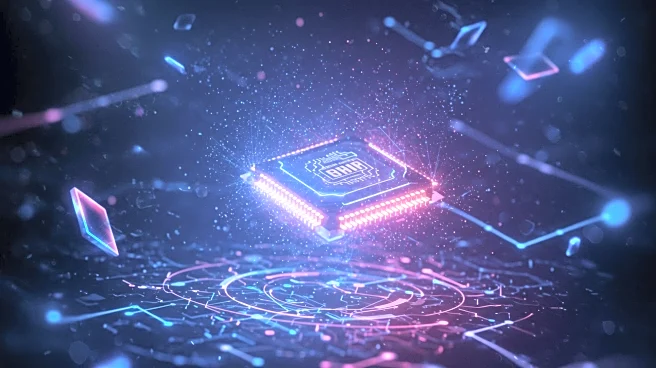What's Happening?
A quantum computer named Jiuzhang 4.0 has achieved a significant milestone by reaching 'quantum advantage.' This computer, which uses particles of light, completed a calculation in about two dozen microseconds that would take the world's best supercomputers trillions of years. The task involved Gaussian boson sampling, where a sample of photons is measured after traveling through a complex arrangement of mirrors and beam splitters. This achievement marks a tenfold improvement in computational power, as Jiuzhang used 3090 particles compared to previous records involving fewer than 300 photons.
Why It's Important?
The achievement of quantum advantage by Jiuzhang 4.0 represents a significant step forward in the development of quantum computing. This milestone demonstrates the potential of quantum computers to perform calculations that are currently impossible for classical computers, highlighting their future role in solving complex problems in fields such as cryptography, materials science, and drug discovery. However, the practical applications of this technology remain limited, as the current hardware is highly specialized and lacks fault tolerance. Despite these challenges, the progress made by Jiuzhang 4.0 underscores the ongoing advancements in quantum computing and its potential to revolutionize various industries.
What's Next?
While Jiuzhang 4.0's achievement is a technical milestone, further developments are needed to make quantum computing more practical and widely applicable. Researchers will continue to work on reducing noise and improving fault tolerance in quantum computers, which are crucial for their reliability and broader use. Additionally, efforts will focus on expanding the range of tasks that quantum computers can perform, moving beyond specialized calculations to more general applications. As the technology matures, it is expected to open new avenues for innovation and problem-solving across multiple sectors.










